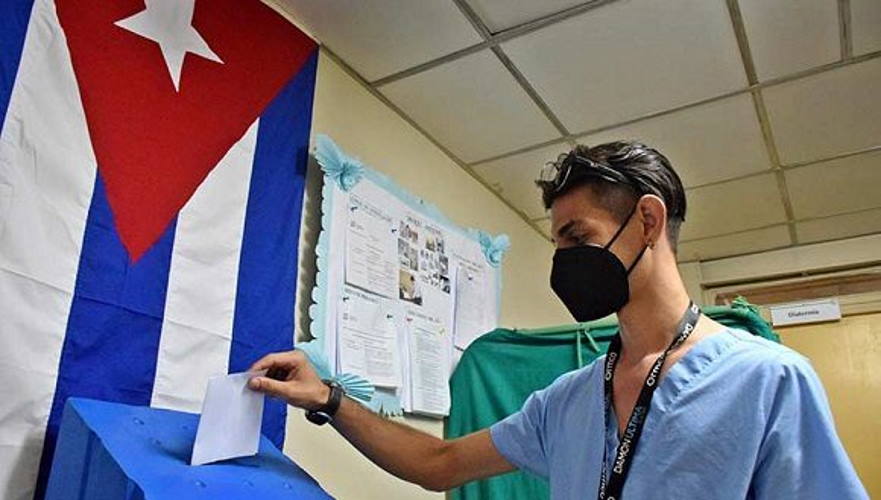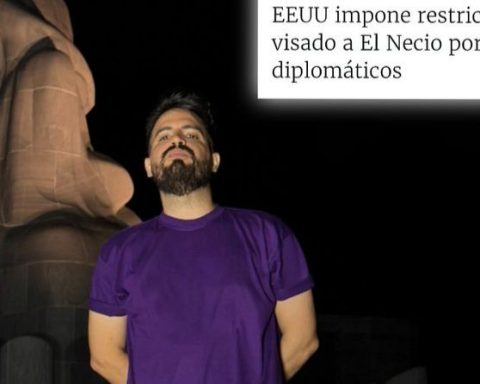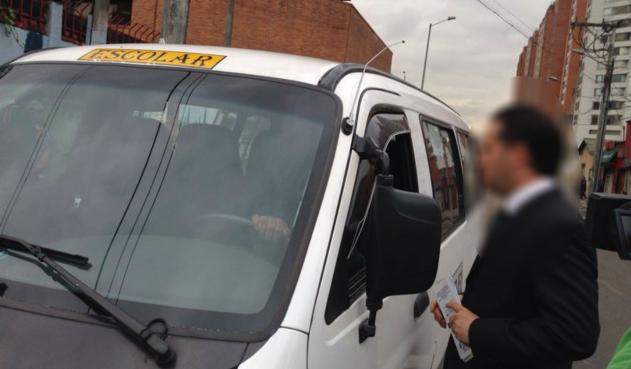Havana Cuba. — The victory of the Yes in the referendum on the new Family Code of Sunday September 25 is a classic case of Pyrrhic victory, even taking for granted and accepting the official figures.
According to the data of the National Electoral Council —preliminary, despite taking more than twelve hours—, 66.87% of the votes were in favor of Yes. But the participation in the vote of those registered in the register was 74, 01%, the highest level of abstention recorded in a vote called by the regime.
If we add to the 2,195,681 people who abstained 1,950,090 who voted No —always according to CEN data— and the ballots that were annulled, the result would indicate that around two-thirds of those eligible to vote expressed their rejection of the Code . And also to the regime, because President Díaz-Canel had insisted that the vote for the Yes to the Code was also “for the revolution and socialism.”
The abstention and outright rejection of that number of Cubans is not insignificant if we take into account the overwhelming propaganda and proselytizing campaign in favor of the Code deployed by the regime in recent months and the mechanisms of coercion so that the population goes massively to the ballot boxes and vote —so as not to point fingers and not look for problems— in the way that the bosses direct you.
And, knowing the usual methods of Castroism, it is not unreasonable to suppose that the votes for NO and the abstentions were more than those officially recognized. It was enough to see the low influx of public in the voting centers and count the people one knows who did not go to vote.
Judging by the many comments against the Code that were heard in the streets on the eve of the referendum, it could not be ruled out that the No.
Most of the discussions about the Code among ordinary Cubans focused, mainly and quite superficially, on same-sex marriage, which generates rejection among many people. And not just for religious reasons. Homophobia, prejudice and many misconceptions, whatever they say Mariela Castro and their CENESEX coryfeos, continue to be rooted in Cuban society. Much of the blame for this lies with the regime, which in its first three decades made state political homophobia, repressing and excluding not only homosexuals, but also those who appeared to be or were “weak”, according to the macho-Castro-Leninist perception.
But more than the homophobes, who are no longer as many or as virulent as before, there are the people who are not homophobic at all, but who refused to endorse with their vote —although they may agree with various aspects of the Code— what they consider a farce, a hypocritical and manipulative maneuver by the regime to pose as modern, inclusive and concerned about human rights and improve its increasingly deteriorated image.
It is not only the people who openly oppose the regime who have this position contrary to the Family Code. Many men and women who usually say they are not interested in “politics” and that they do not want to “look for trouble” described the referendum as a joke and assured that they would not go to the polls or that, if they did, they would vote No.
Thus, it would give a higher percentage than that officially admitted if to those who abstained we add those who fear seeing their authority over their children diminished due to the issue of parental responsibility and progressive autonomy, the homophobic, the irreducible sexists, the prejudiced, the faithful of the Catholic and Evangelical churches, the opponents who never attend the voting organized by the regime, but who this time attended the referendum to vote for No, and the people who, without being opponents, used No as a vote of punishment for government by inflation, hunger and blackouts (as Díaz-Canel himself recognized could happen).
But even if the No had been imposed, the regime would not have admitted it. It’s not his style. Bosses never accept losing. Not even the spits.
After so much propaganda bombardment, the Code was approved by the always unanimous National Assembly and already published in the Official Gazette, they were not going to accept defeat. Especially since they, who accuse their opponents of politicizing the issue, turned the referendum on the Code into a referendum on Castro’s socialism.
The regime’s spokesmen are already explaining that those who abstained from going to vote were due to the rains brought by the proximity of Hurricane Ian or other reasons, and that “they did not necessarily do so because they opposed the revolution.”
But, even if the No had been imposed, and the regime had accepted it, still, the bosses would take advantage of it. They would have posed as democratic to respect the will of the majority. They would argue that it was not left for them, that they made the effort, but that “our society has not been able to overcome certain prejudices of the past” and that “the counterrevolution, through its campaign of lies on social networks, managed to confuse many, taking advantage of of the discontent caused among the population by the vicissitudes caused by the blockade”.
An additional gain for the bosses of continuity, who do tricks to avoid going under, would be that with this referendum they managed to distract and divide Cubans even more. Especially the dissidents. They have manipulated feelings so much that now some gay activists consider that the opponents who reject the Code because they come from the dictatorship are selfish and retrograde who oppose their rights, while they see the Castroists, who until a few years ago excluded them, despised and repressed, like their allies and benefactors.
OPINION ARTICLE
The opinions expressed in this article are the sole responsibility of the issuer and do not necessarily represent the opinion of CubaNet.
Receive information from CubaNet on your cell phone through WhatsApp. Send us a message with the word “CUBA” on the phone +525545038831, You can also subscribe to our electronic newsletter by giving click here.

















